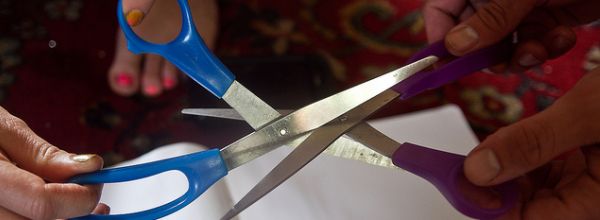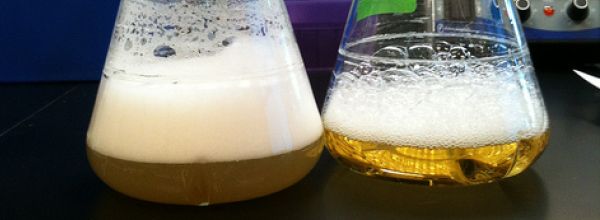An academic lab is a unique working environment. Lab members are expected to take responsibility for their own research projects and perform the work quickly and efficiently. However, unlike an industrial or corporate setting, there are often no clearly defined management structures. This means that when it comes to communal equipment, reagents and resources, individual responsibilities can be vague and poorly defined. To get things done, you need to organize a research lab.
This isn’t Dunder Mifflin
The hierarchy in labs is usually very loose. There are no middle managers, so researchers rely on each other to do the right thing and keep the lab functioning. Sometimes that results in a really co-operative and egalitarian vibe, and sometimes it feels like Lord of the Flies: Science Edition.
It’s no accident that so many labs feel like they are operating on the brink of chaos – it’s hard to rely on frazzled grad students and grumpy post-docs to behave in a co-operative way. Pressure to produce results and publish quickly will only increase as science funding continues to be cut. This environment is likely to produce even less natural collaboration between scientists.
Big Lab = Big Problems
A small lab with only a few members works well – it’s easy to discuss any organizational plans and issues between small numbers of people. However, as labs expand, they soon reach critical mass. If steps aren’t taken to effectively organize lab members and define their responsibilities, big issues materialize very quickly. Before you know it, the lab has a serious problem. Reagents are used and never replaced. Consumables are never re-ordered. Inevitably, this results in total panic late one night in the lab when you discover your important experiment can’t be completed because a vital reagent or component has been used up. Something clearly has to be done.
Here are Some Suggestions on What NOT To Do
Passive Aggressive Notes
Why talk to people like a calm and rational adult when you can let angry block letters do the talking? If the notes are in all caps you KNOW THEY’RE VERY SERIOUS AND MEAN BUSINESS. Use smiley faces to soften the blow – we’re all friends here, right guys? :) For extra authority, sign the note ‘The Management’. And don’t forget to bust out the old classic, ‘Your Mother Doesn’t Work Here’. (For the record, my mother works in electron microscopy. So, it’s not surprising that you don’t see her around a biology lab).
Pretend Everything is Fine, Then Explode
This option can be very entertaining for your lab-mates, but pretty terrible for your mental health. Don’t silently soldier on through gritted teeth, inwardly fuming about the slobs you’re forced to work with until one day a balance scale with a mystery powder spilled all over it sends you hurtling over the edge into a full-scale meltdown.
The Biting Freezer
On second thought, someone please make this happen.
Strategies to Organize a Research Lab
A clear organizational strategy is not only important for lab harmony; it also prevents wasted money from duplicated orders and multiple shipping fees. There are several good options when it comes to lab organization.
1. Assign Individual Responsibilities
Assign every lab member separate tasks. Make each person responsible for re-ordering certain reagents and cleaning or maintaining certain lab areas. Since each task has a name attached to it, there’s no blame-dodging if the work isn’t done. Accountability can often nudge lab members into doing the right thing.
2. Keep Information Centralized
To keep track of orders in progress, use one source or document that can be accessed by everyone. You can use an online option like Google Docs or even just a whiteboard. Items needing to be ordered are added to the list and then updated or removed when the order has been placed.
3. Use Specialized Lab Organization Software or Online Systems
There are several online systems designed to help with lab organization and management. Labguru, Quartzy and iLab Solutions are three popular options. Quartzy has features for plasmid sequences and even freezer box maps to maintain exact records of lab reagents. Orders can also be raised and submitted (particularly in the USA) through one central system. These online management tools are generally sophisticated and easy to use, but they do require at least one committed person to maintain them.
Adopt a Team Effort Approach
All of these organizational options can be used individually or in combination to organize a research lab. However, what really matters is that everyone makes an effort to use whatever system is in place. Leaving all of the organization to one or two people creates resentment and frustration, which are both completely toxic to lab productivity. A little effort and organization in the beginning will save a lot of arguments and recriminations in the future.







